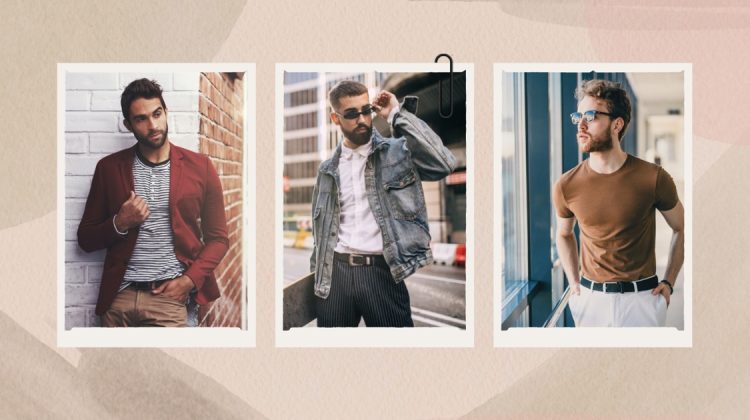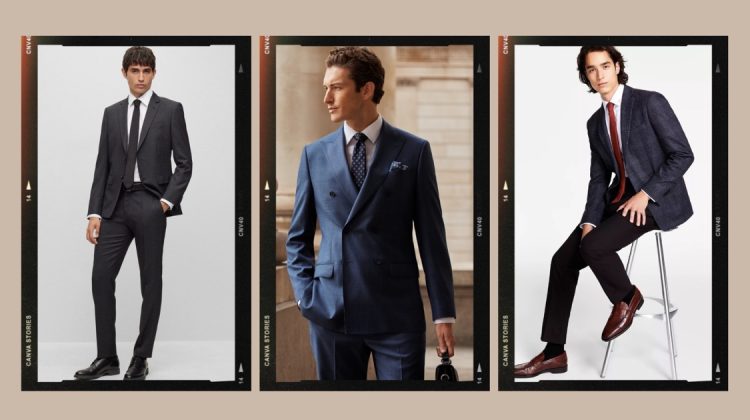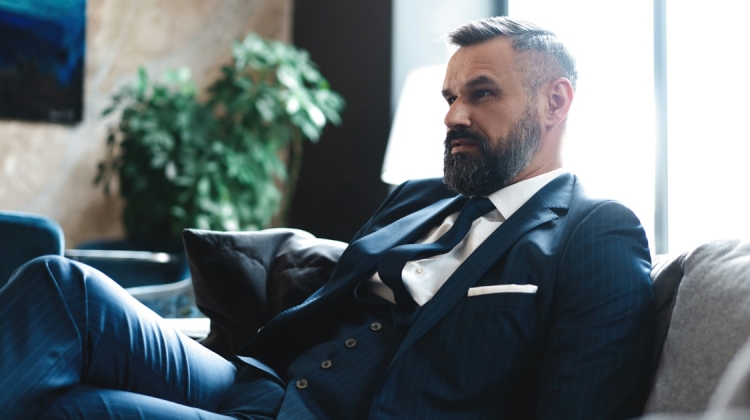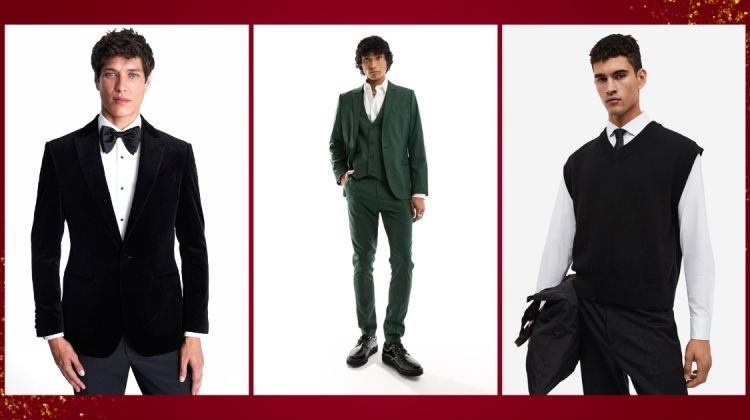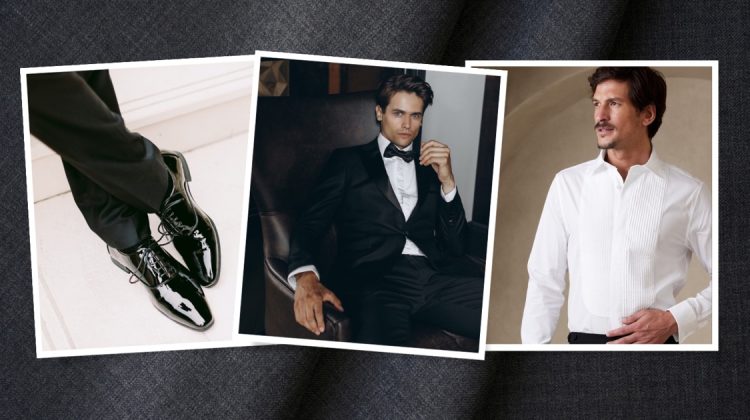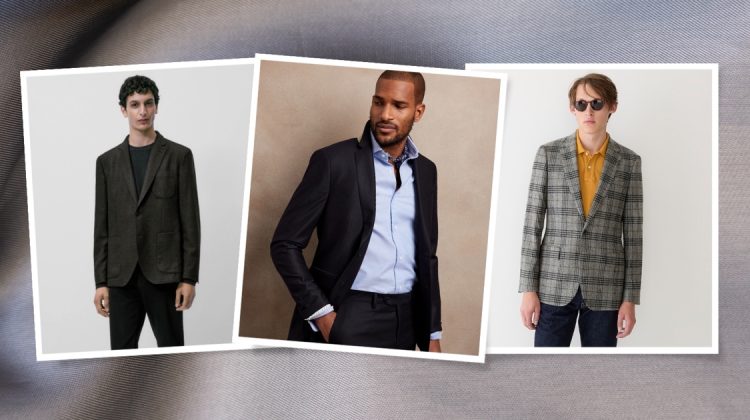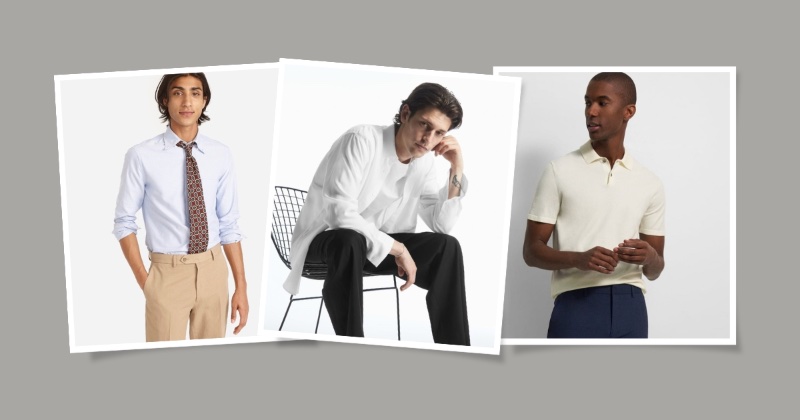
Across industries, business casual for men has become the dominant dress code. The days when offices required daily suits and ties are largely gone, yet the word “casual” creates more confusion than clarity. What might pass in a design studio could be out of place in a law firm, and what works for a Friday lunch may feel underdone in a Monday meeting.
Business casual has never been about throwing formality out the window. It is a system of balance, combining professional standards with personal expression. For men, the challenge lies in understanding context and building a wardrobe that can move seamlessly between office cultures.
What is Business Casual for Men?
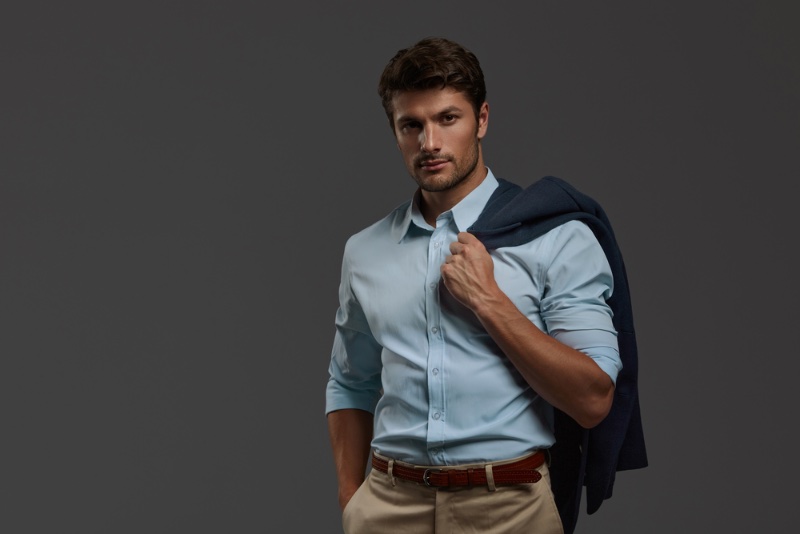
At its simplest, business casual blends professional clothing with more relaxed staples. The look might involve chinos worn with a navy blazer, a crisp Oxford shirt tucked into wool trousers, or even a polo layered beneath a sports coat.
The idea is to remain professional while balancing clothes that feel easy but still project authority. The unspoken rule is always the same. Keep the professional element first and let the casual side serve as support.
Business Casual vs. Smart Casual
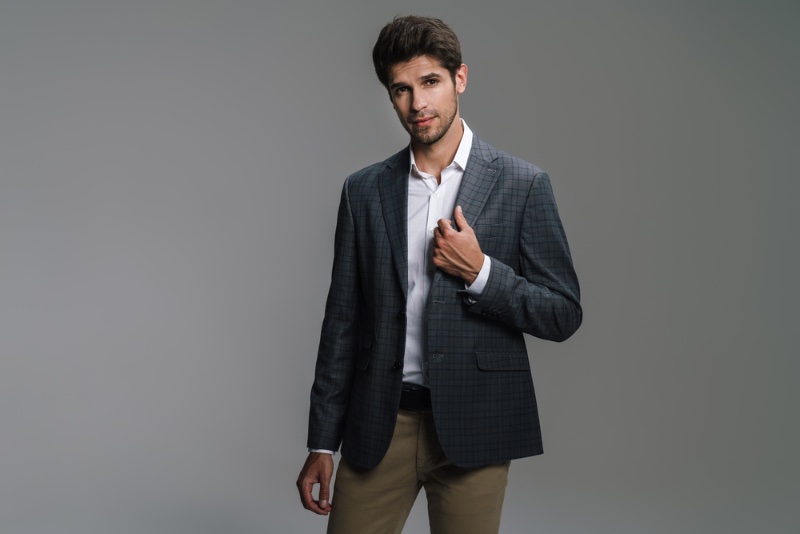
Though often blurred, business casual and smart casual are not the same. Business casual is rooted in the workplace, where polished chinos, Oxford shirts, and loafers form the backbone.
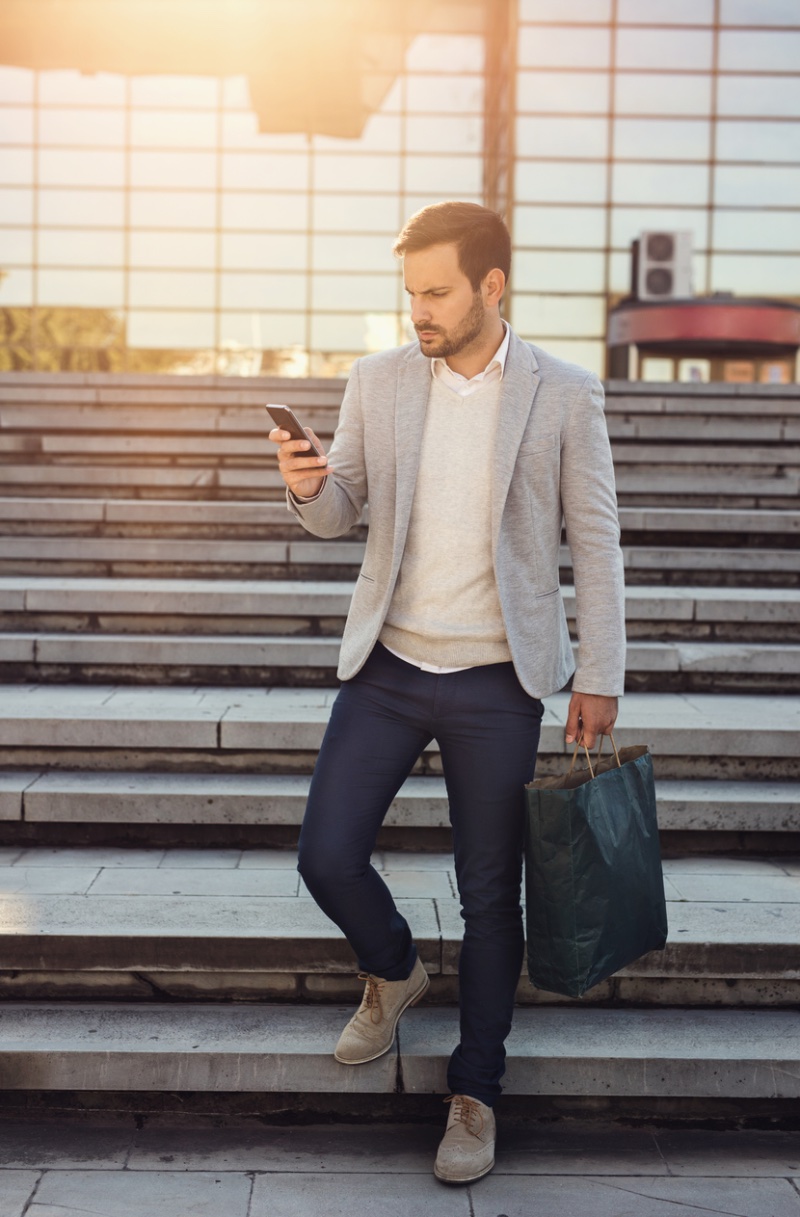
Smart casual, by contrast, tilts toward the social sphere: dark denim with a polo, a knit jacket with sneakers, or a patterned shirt for evenings out. If you are unsure, remember that it is always safer to lean toward the business side. A sharper jacket or darker shoe rarely offends, while being underdressed can undermine confidence.
Strict vs. Creative Business Casual
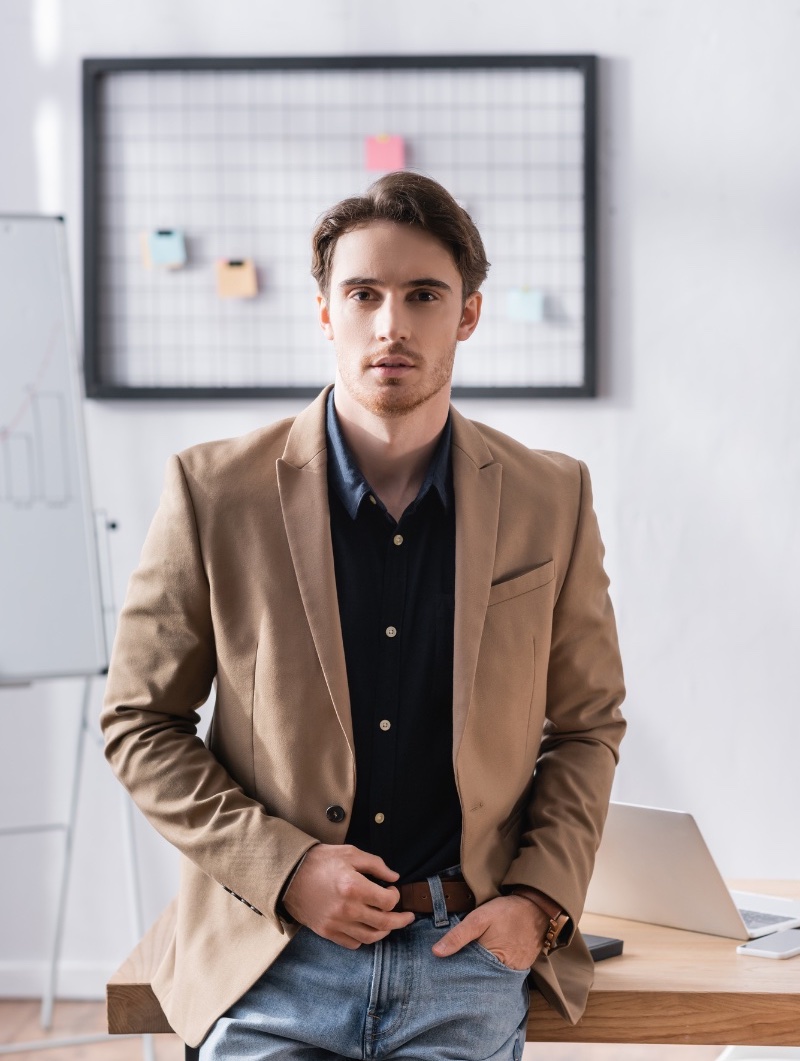
Not all workplaces interpret business casual in the same way. Some lean toward a stricter version, where blazers, pressed trousers, and formal shoes are expected, even if a tie is not. Others take a more creative approach, where dark jeans, premium sneakers, and unstructured jackets are accepted.
Conservative industries like finance or law usually favor the stricter reading. Tech, media, and creative fields often encourage the looser end of the spectrum.
Building a Business Casual Wardrobe
Shirts
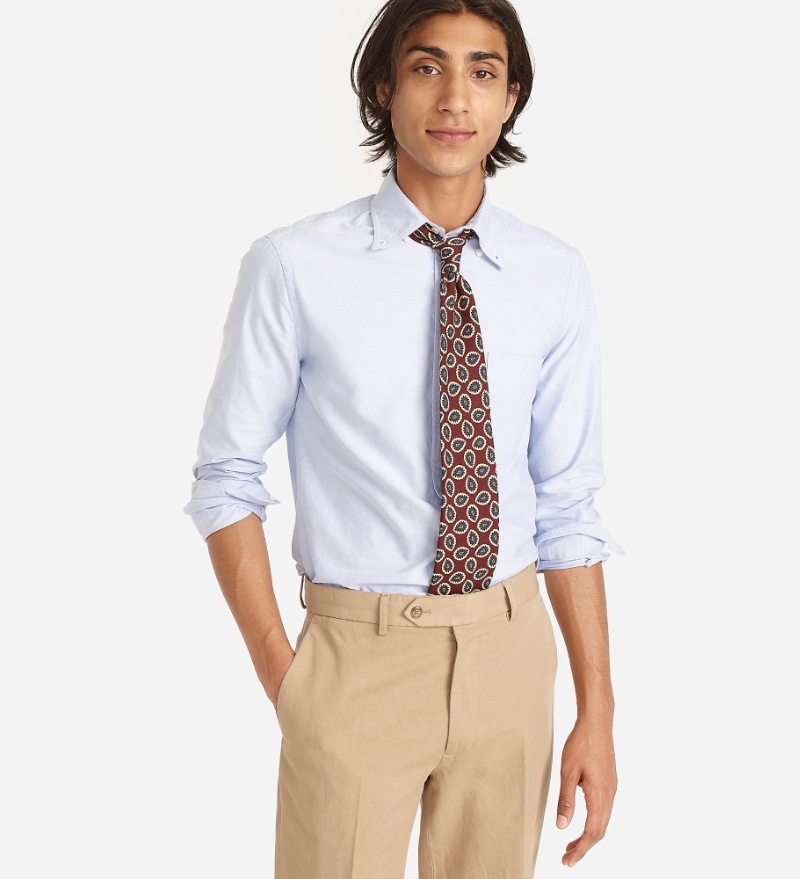
The foundation of any business casual look begins with shirts. A white or pale-blue Oxford remains the most reliable choice, its textured fabric and button-down collar lending structure.
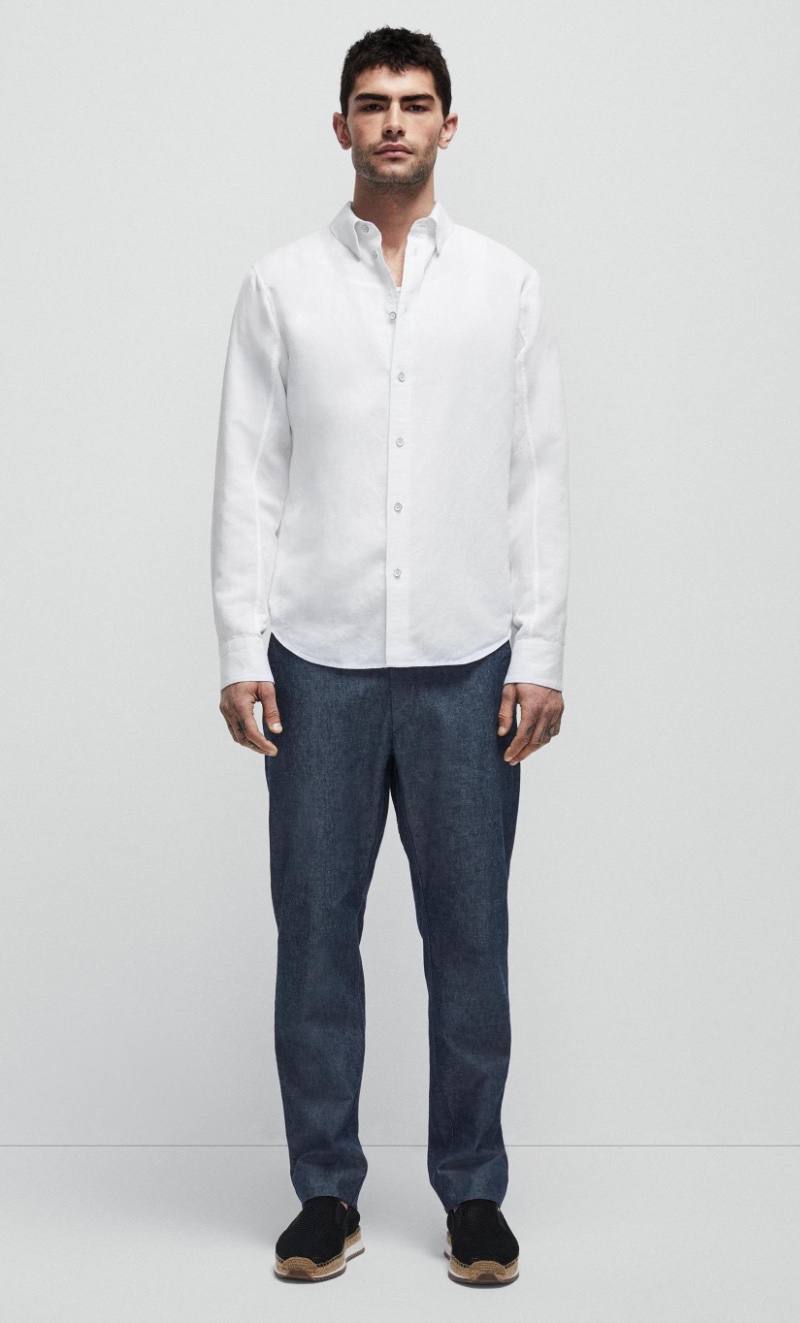
Standard button-down shirts in muted colors such as navy, beige, or grey expand the range while keeping the look professional. In warmer months, polos step in as a lighter alternative. Refined versions from Lacoste or Sunspel work well under a blazer or paired with tailored chinos.
Blazers & Jackets
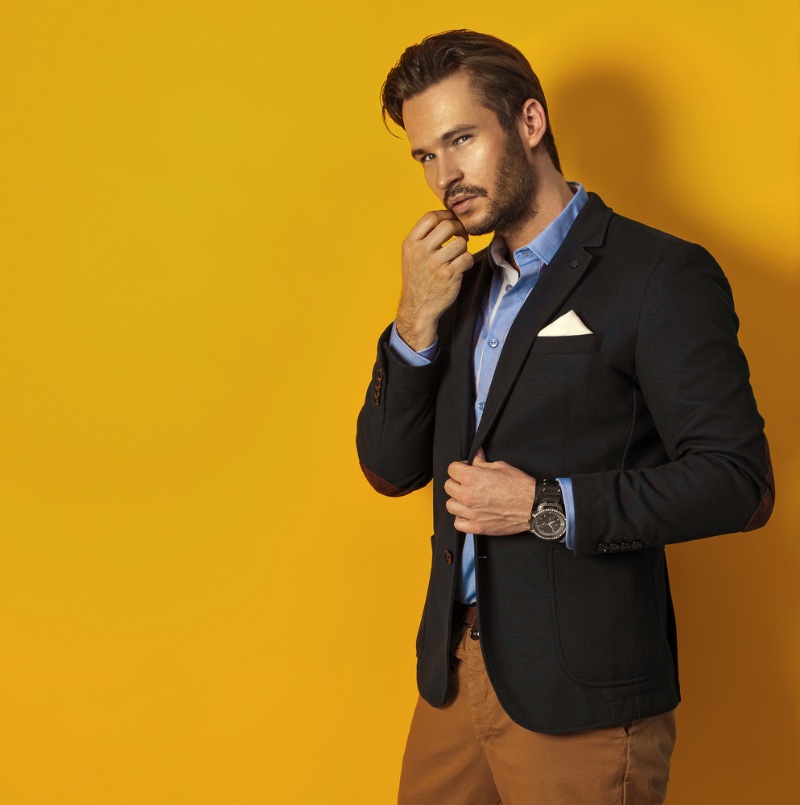
A navy or charcoal blazer remains the most versatile piece in a man’s work wardrobe. It adapts to interviews, client meetings, or daily office wear. For settings with more relaxed codes, an unstructured cotton blazer or a textured sports coat softens the formality.
Jackets of this kind allow for easy pairing with trousers or even dark denim, giving flexibility to dress up or down.
Sweaters

When temperatures cool, a fine merino or cashmere sweater is the simplest way to add polish. A V-neck sits neatly over a collared shirt, while a crew neck works well with chinos or layered beneath a blazer. Neutral colors, such as navy, camel, or charcoal ensure year-round wear.
Trousers & Chinos
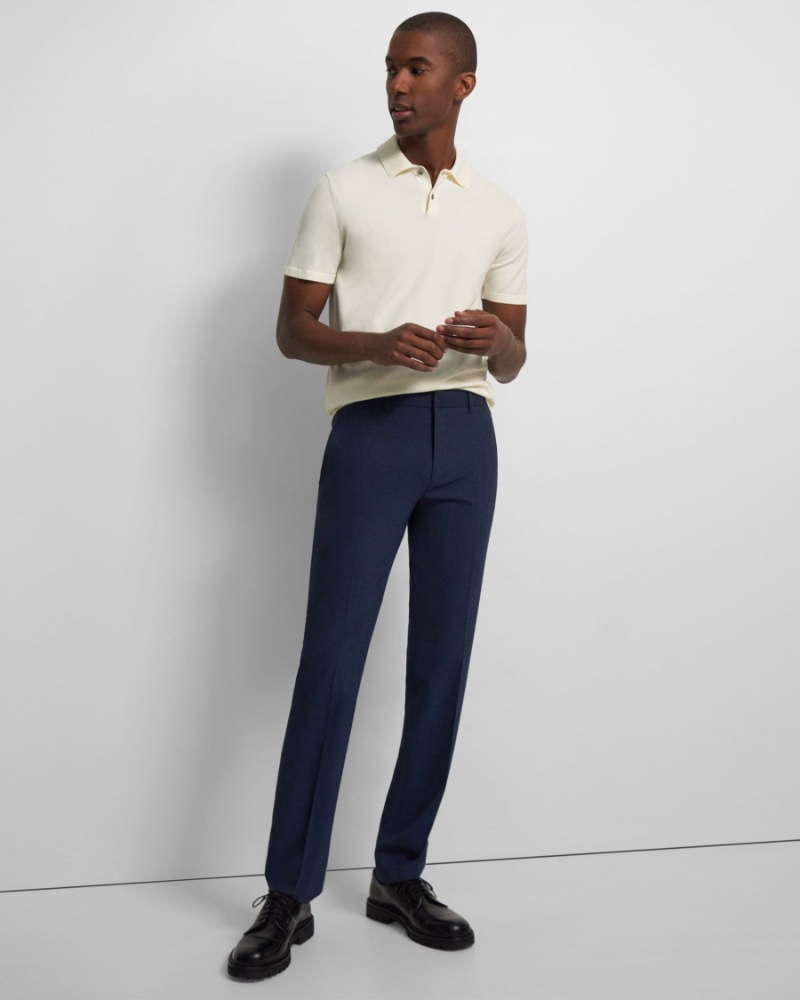
Well-cut trousers remain the anchor of business casual. Wool versions in navy or grey offer the most formality, while chinos in khaki, olive, or taupe adapt to less rigid offices.
The fit should be clean, with fabric draping naturally without bunching at the ankles. When in doubt, a tailored chino is the safest ground between casual and professional.
T-shirts
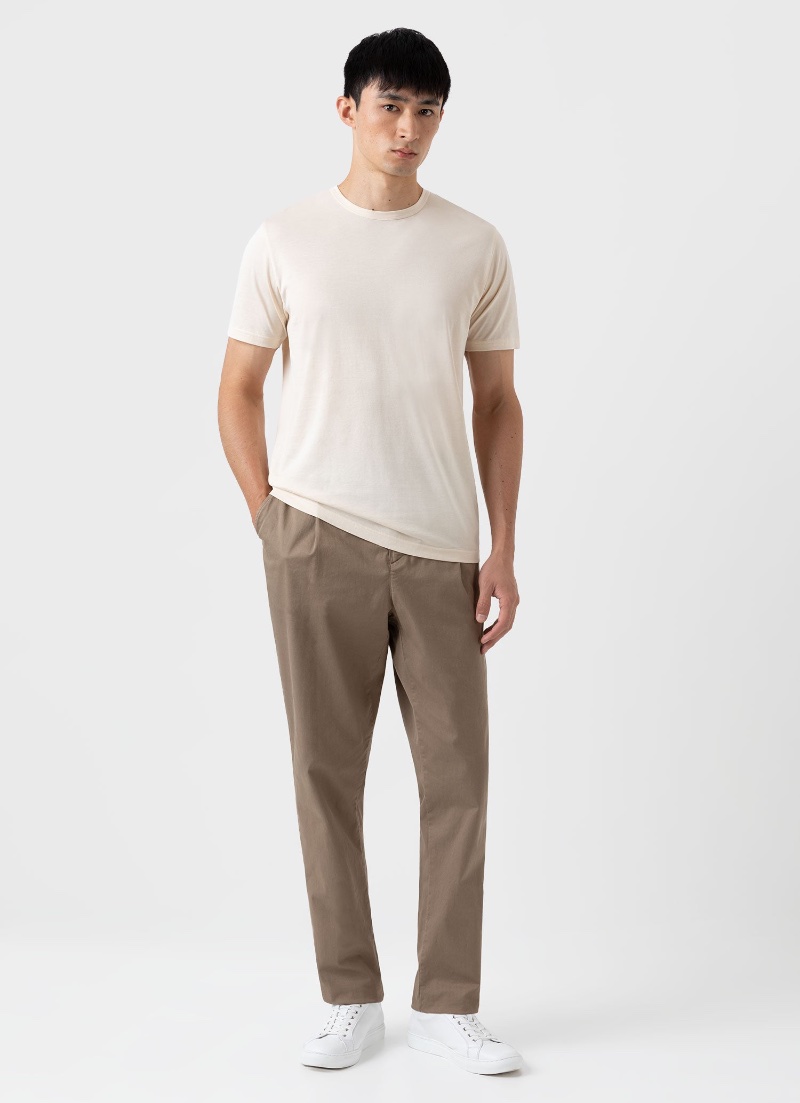
Once considered weekend-only attire, the T-shirt has entered the business casual wardrobe. The key lies in fit and fabric. A solid-color T-shirt in a structured cotton or fine jersey can act as a base layer that feels relaxed yet composed.
When paired with tailored trousers, the look becomes sharper, and adding a blazer elevates the T-shirt into office-ready sophistication. Brands such as Sunspel and Everlane excel at producing premium tees that hold their shape and deliver a cleaner finish than standard casual tees.
Polo Shirts
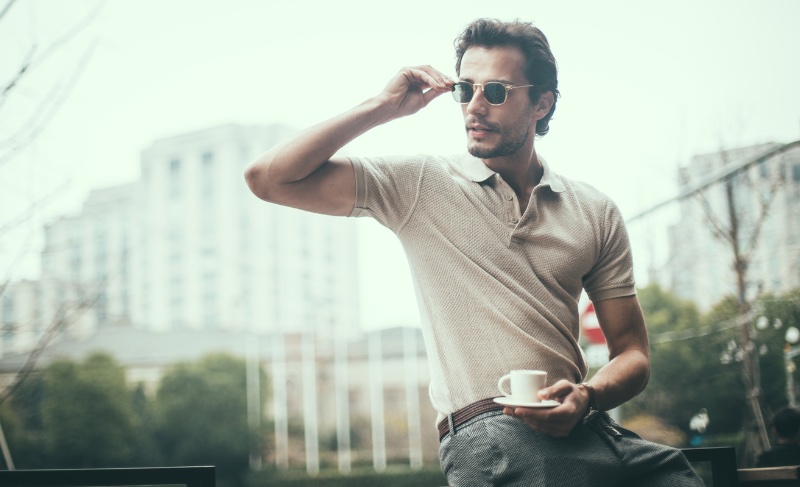
Polo shirts provide a smart alternative to traditional button-downs, offering structure through the collar while remaining more relaxed than an Oxford. Their versatility makes them easy to layer under a blazer or pair with knit sweaters in cooler months.
Muted shades such as navy, grey, beige, or black keep the look professional. A polo can transition from the office to after-hours by switching sneakers for loafers or adding a suit jacket.
Jeans
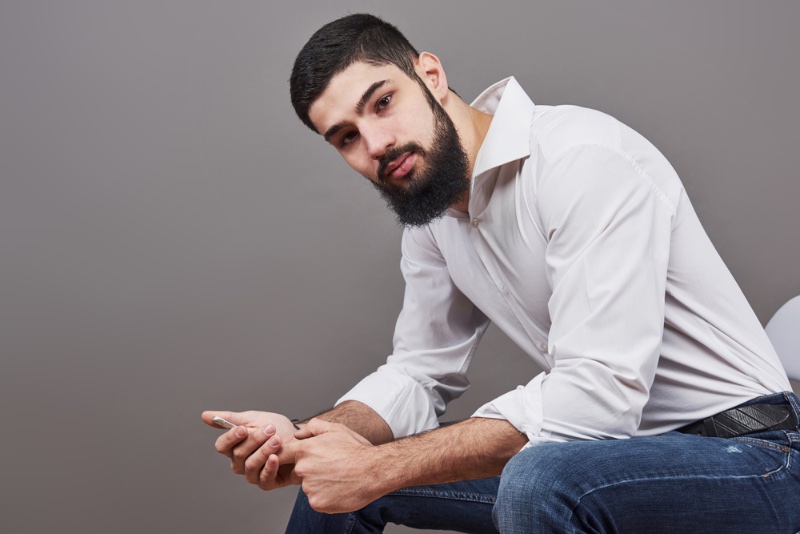
Denim divides opinion, but many modern offices permit it. The key is restraint. The ideal business casual jeans have a dark indigo wash, no distressing, and a trim but not skin-tight fit. Worn with a collared shirt and loafers, jeans can read sharp. Worn baggy or faded, they slide into weekend territory.
Shoes
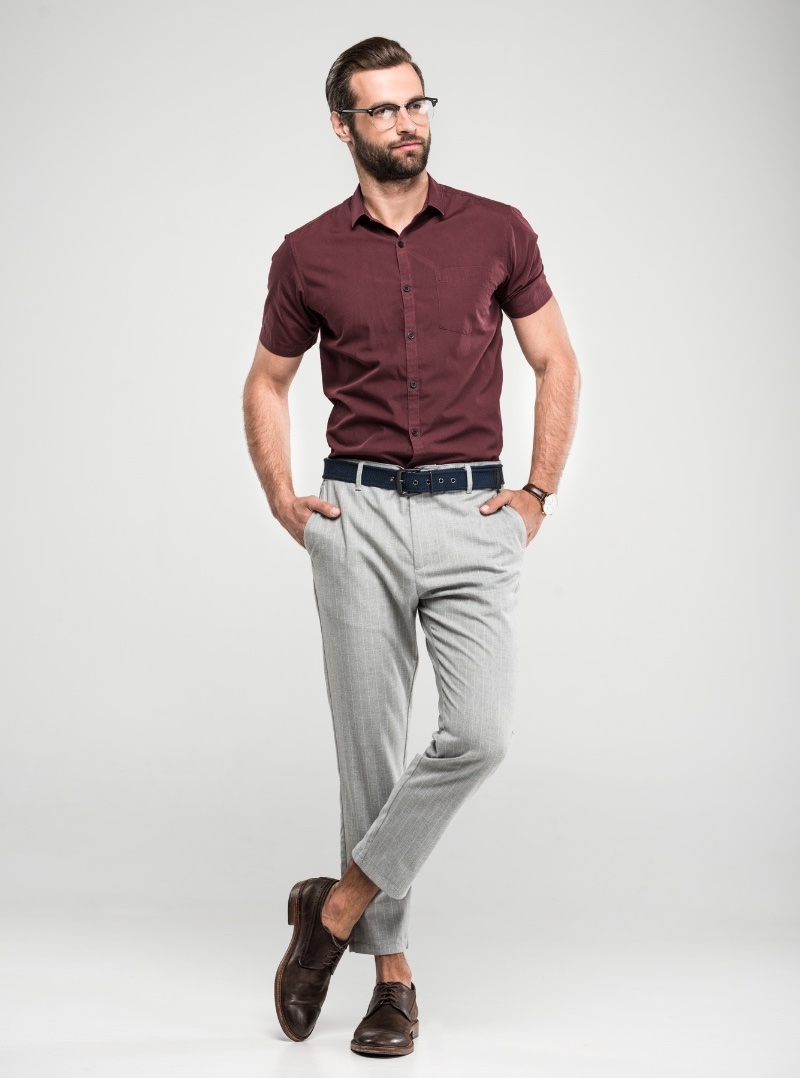
Footwear sets the tone. Traditionalists reach for Oxfords, derbies, or loafers. These shoes remain bulletproof in conservative industries. Contemporary offices often allow white leather sneakers, particularly when kept immaculate and paired with tailored pieces.
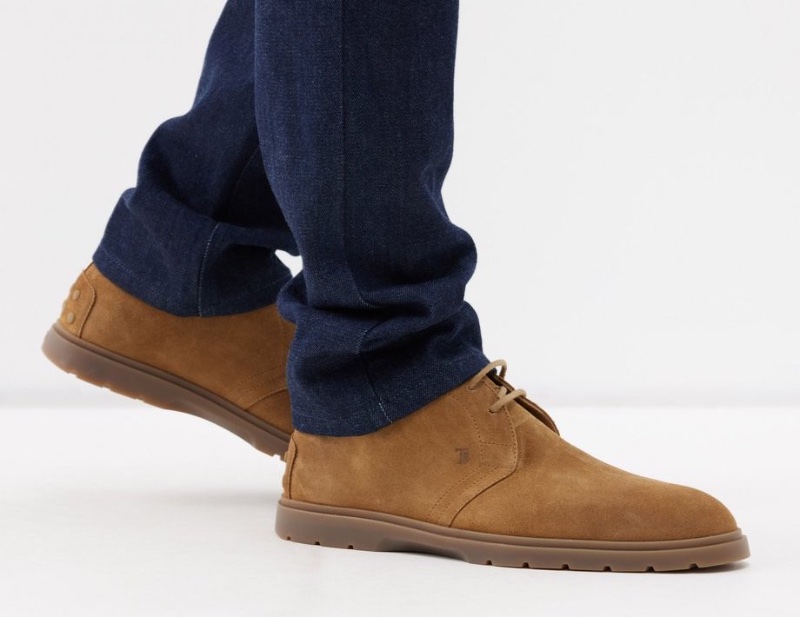
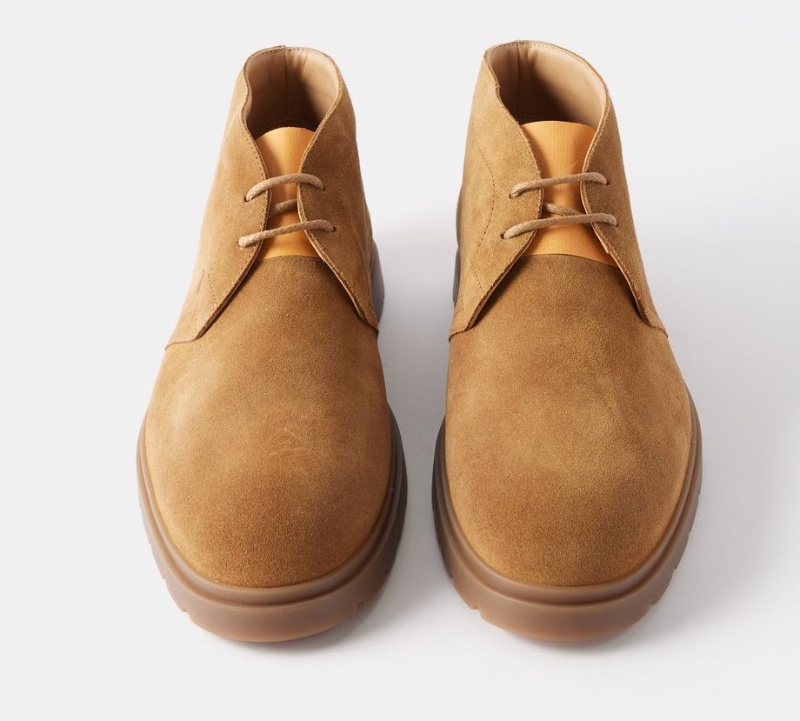
Chukka boots and moccasin-loafer hybrids from brands like Tod’s or Brunello Cucinelli offer further middle ground.
Accessories
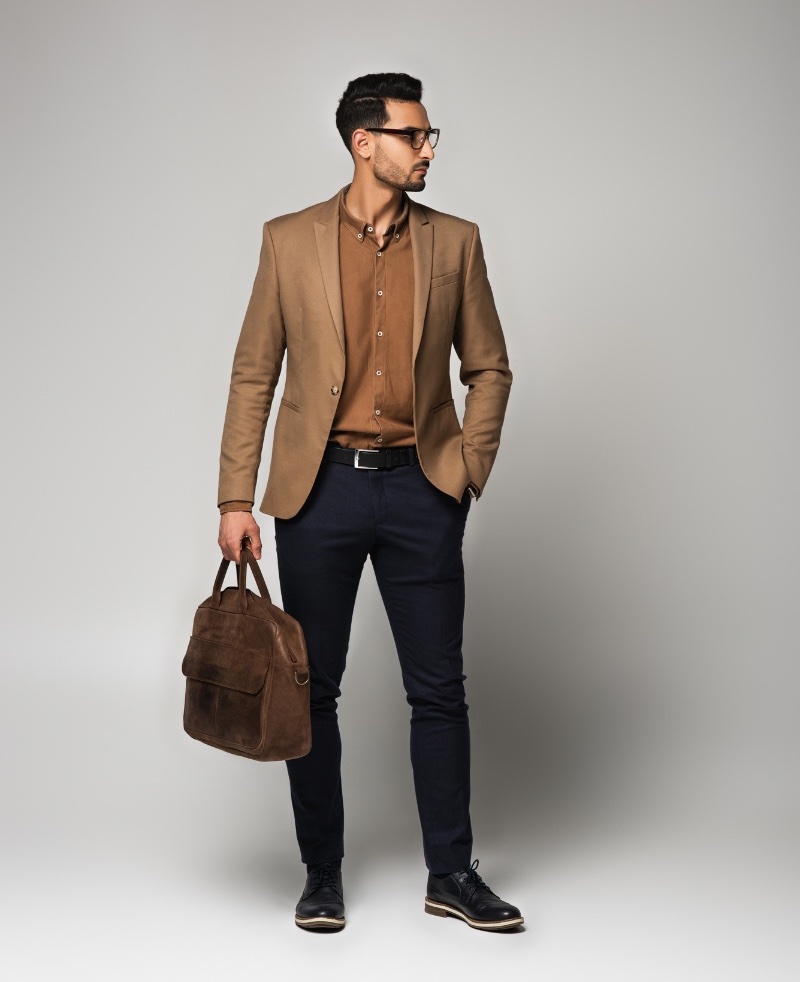
Accessories should complement. A leather belt in black, brown, or tan is essential, with its color matched to shoes. Watches provide subtle expression, whether a clean metal dial or a relaxed leather strap.
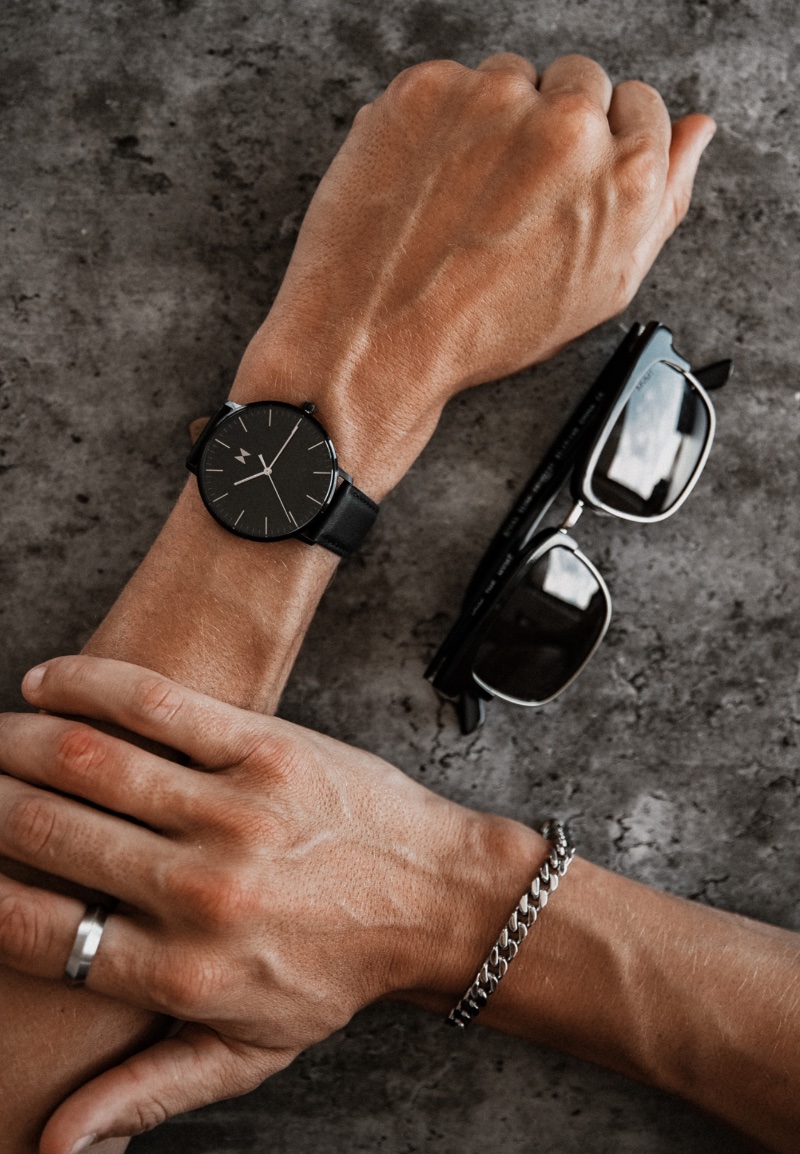
Pocket squares, minimal bracelets, or discreet rings can personalize a look, but restraint is always best. Bags follow the same principle: a slim leather briefcase for formality, or a discreet backpack for relaxed settings.
Business Casual Outfit Ideas
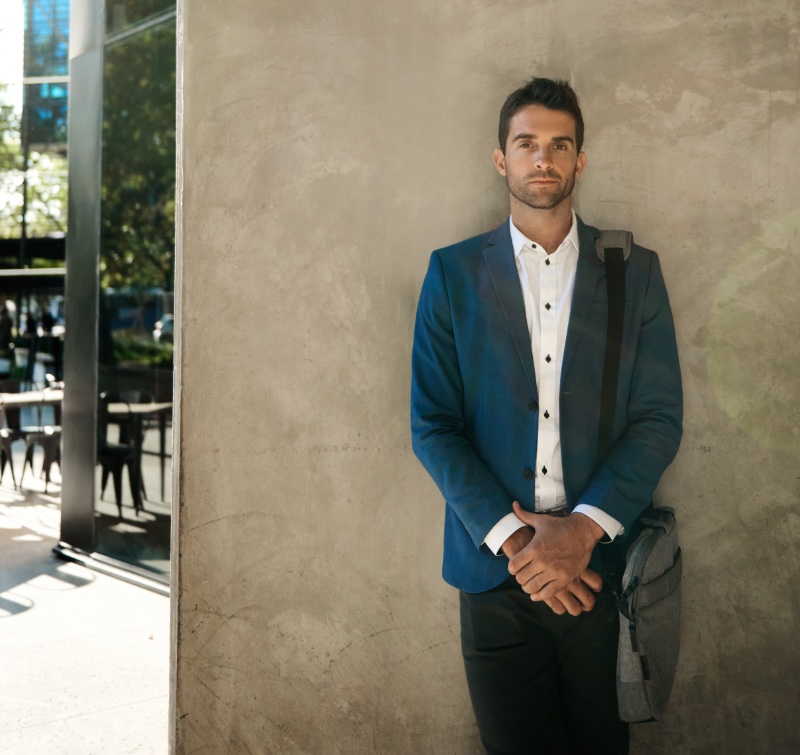
To see the balance of business casual attire in practice, consider three formulas. A strict version pairs a navy blazer with a white Oxford, grey trousers, and black Oxfords.

A more balanced approach might feature a light-blue Oxford tucked into tan chinos with brown loafers and a leather belt.
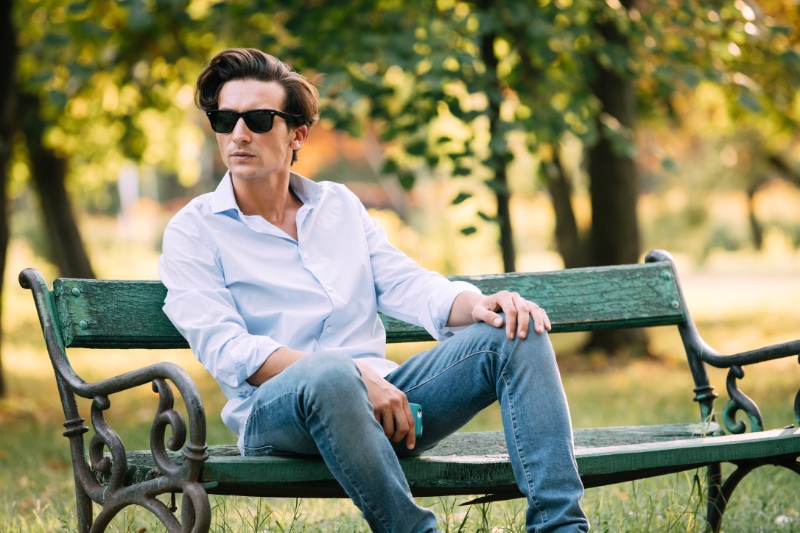
On the creative side, a crisp collared shirt worn with denim and white sneakers, captures the modern spirit of business casual.
Common Mistakes

Business casual only works when the details are right. Oversized shirts, wrinkled chinos, or sneakers that look more suited to the gym weaken the effect. Likewise, overly flashy jewelry, distressed denim, or wearing a stiff suit jacket instead of a proper blazer often miss the mark. Fit, condition, and context matter as much as the garments themselves.
Grooming & Finishing Touches

No look feels complete without grooming. Professional hair should be neat, whether cropped close or parted. Beards are acceptable if trimmed and maintained.
Cologne should be light and subtle, ideally an Eau de Toilette that works in close quarters. Above all, clothing should be pressed, shoes polished, and accessories minimal.
Seasonal Adjustments

The business casual code shifts slightly with the seasons. In spring and summer, linen shirts, cotton polos, and lighter chinos in sand or beige keep things breathable. Suede loafers or even espadrilles, in relaxed offices, complete the look.
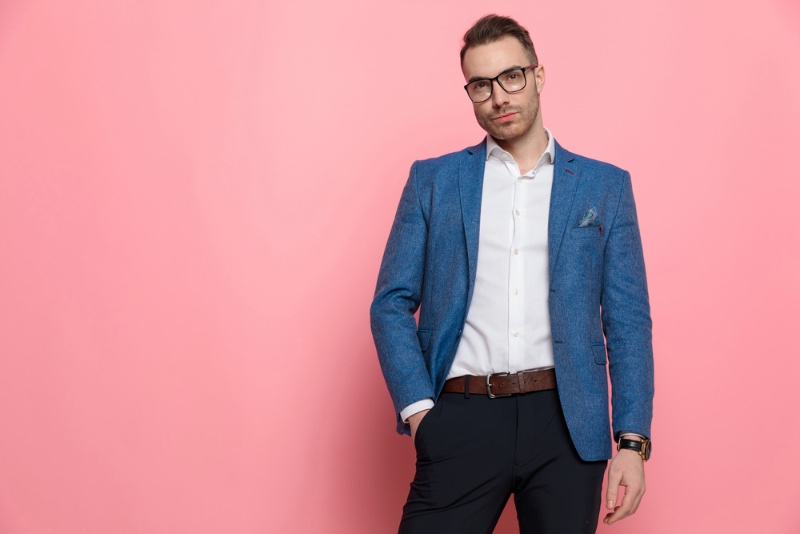
By fall and winter, wool trousers, corduroys, and cashmere sweaters dominate, with chukka or Chelsea boots adding practicality. Seasonal rotation ensures the wardrobe feels both professional and versatile.
The History & Future of Business Casual
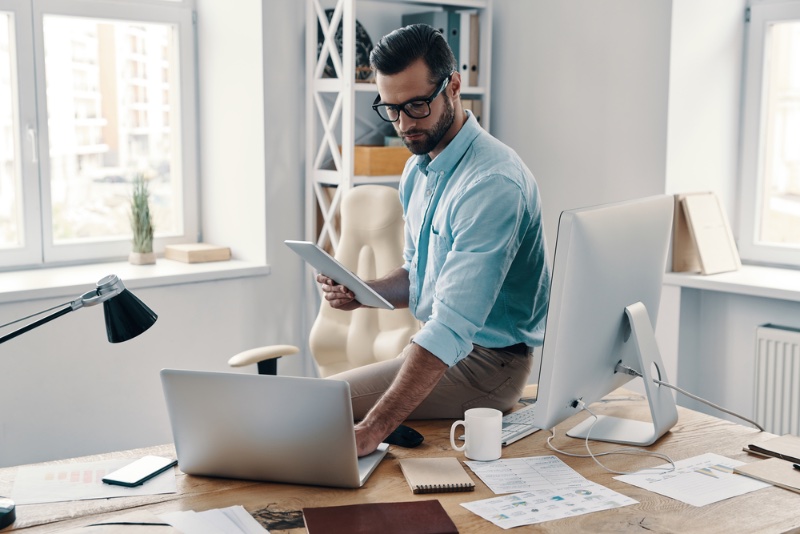
Business casual is often treated as a modern invention, but its roots stretch back a century. During the World Wars, rationing and practicality pushed men toward slacks and sweaters over full suits.
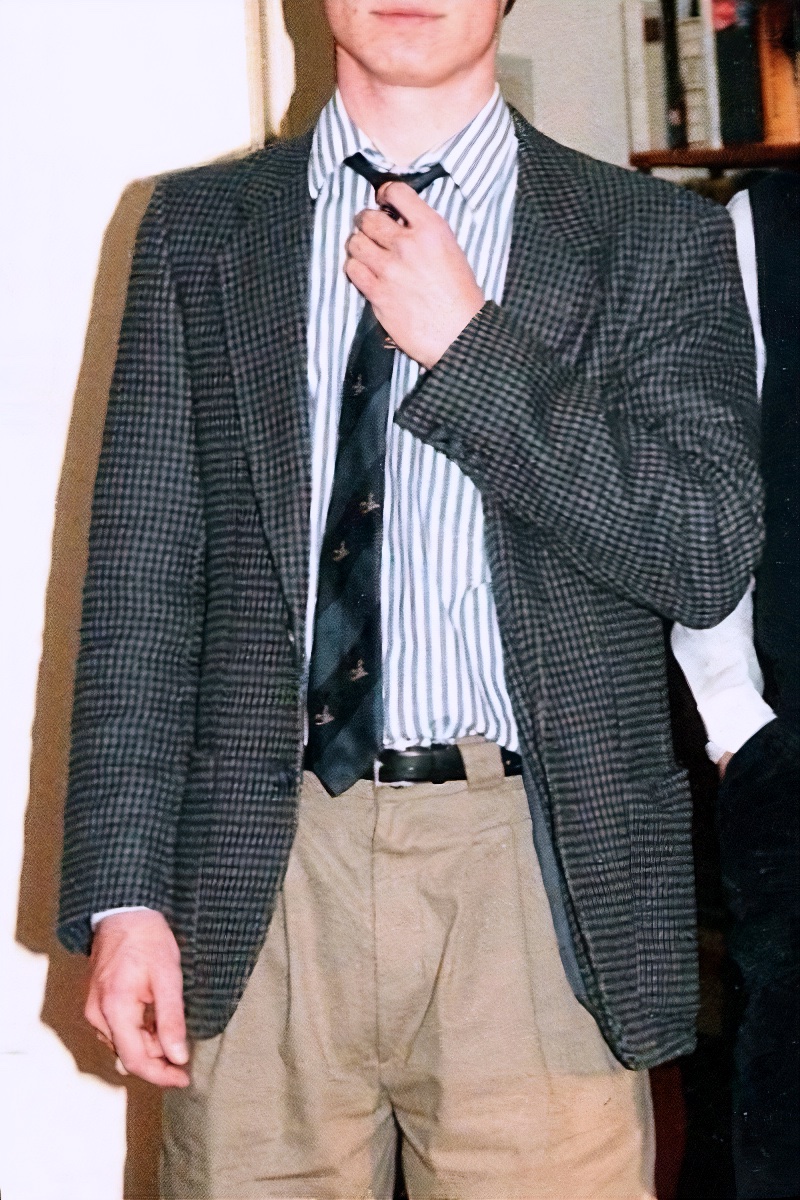
In the 1980s, IBM’s “Casual Fridays” marked a corporate shift, introducing khakis and button-downs into American offices. By the 1990s and 2000s, Silicon Valley had normalized jeans and polos, cementing the idea that competence need not depend on a tie.
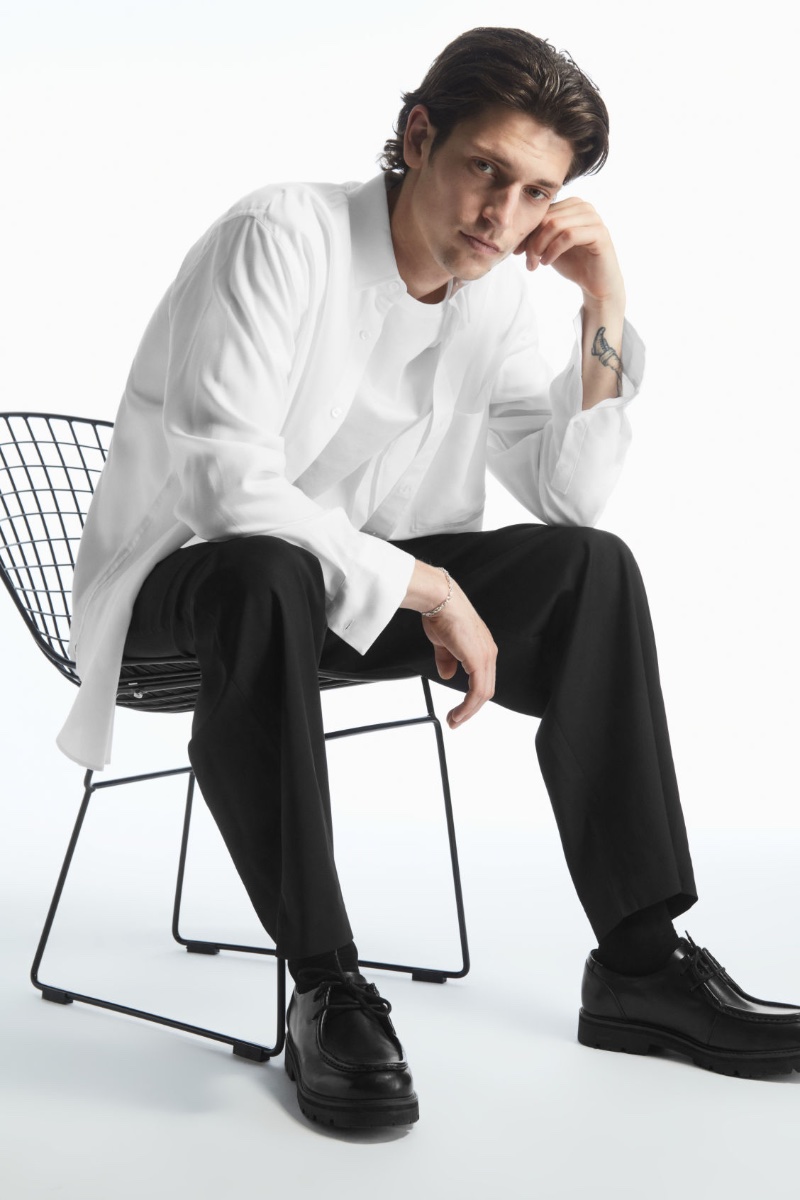
Today, hybrid work and generational shifts have further relaxed the code. Employers see flexible dress standards as part of workplace culture, a way to attract talent and reduce rigid hierarchies.
Looking forward, sustainability and versatility will shape what men wear to work. The business casual of the future will be less about rules and more about balance: clothing that adapts across settings while maintaining a professional edge.

